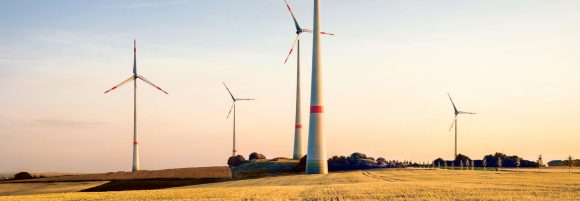
Download translations
Download translations
What role do you see the energy sector playing in Swiss decarbonization efforts?
According to the Swiss Federal Office of Energy, only 26% of the country’s energy consumption was supplied by electricity in 2023, the rest came mostly from fuels or gas. Switzerland’s current electricity mix is very low in CO2 emissions. This is due to the high share of hydropower, which accounts for about 40% of domestic electricity production. Increased electrification of future energy consumption is expected to significantly increase the electricity demand – which should ideally be low carbon. Therefore, electricity, its transportation and distribution, plays a crucial role and is expected to further increase in significance in the future.emissions.
What are key challenges for the energy sector as Switzerland decarbonizes?
Regulation is the primary challenge for our sector. Particularly around approval processes for new assets. For example, we have new renewable power plant projects ready to build – some planned for over 20 years – but they are still on hold due to litigation. The second hurdle is the speed of electrification of fossil energy sources. And third, looking at the electricity sector in particular, demand-side flexibility or batteries are needed as well as accelerated investments in the power grid to allow the system to accommodate the required new renewable assets as well as to be able to deal with the ongoing decentralization of production.
How is BKW facilitating a more sustainable energy sector?
With our setup and strategy, we address the energy transition along the entire value chain, from production, to transmission and distribution, trading and sales, as well as the point of consumption. We do not only support the decarbonization of the energy market through our solutions, but we are also committed as a company to achieve
Net Zero on Scopes 1 and 2 by 2040 – 10 years earlier than Switzerland overall. Sustainability for us is more than climate and energy – we have clear targets on nature, people, and governance.
How is BKW helping its residential and commercial building customers to reduce their own carbon footprints?
On the energy side we provide various solutions like green power supply for large industrials and commercials through Power Purchase Agreements, behind the grid electricity production for example through solar panel installations, renewable heating via district heating and wood pellets, grid flexibility management through demand side management or battery storage, as well as smart charging stations for E-mobility. We also support them with our engineering and building solutions, which allow for state-of-the-art planning, construction, and maintenance of buildings, for example through smart processes or digital approaches.
What do you think will be most critical to aligning the energy sector with Swiss decarbonization goals?
Regulatory complications within the infrastructure approval process are part of the bigger challenges. It is critical, that investors like us can execute projects within a reasonable timeframe – a 10-year approval process is simply too long and makes electricity more expensive for everyone. Sustainability is a crucial decision factor for us in every project. But we need to strike a balance between the climate transition, biodiversity, landscape protection, cultural heritage and the interests of local societies. Moreover, Switzerland needs to be seen as part of the European energy system. We are not an energy island – we depend on our neighbors, and they depend on us. From an energy perspective, a close integration into the European system, particularly in terms of electricity, is crucial for the long-term success of the energy transition.

